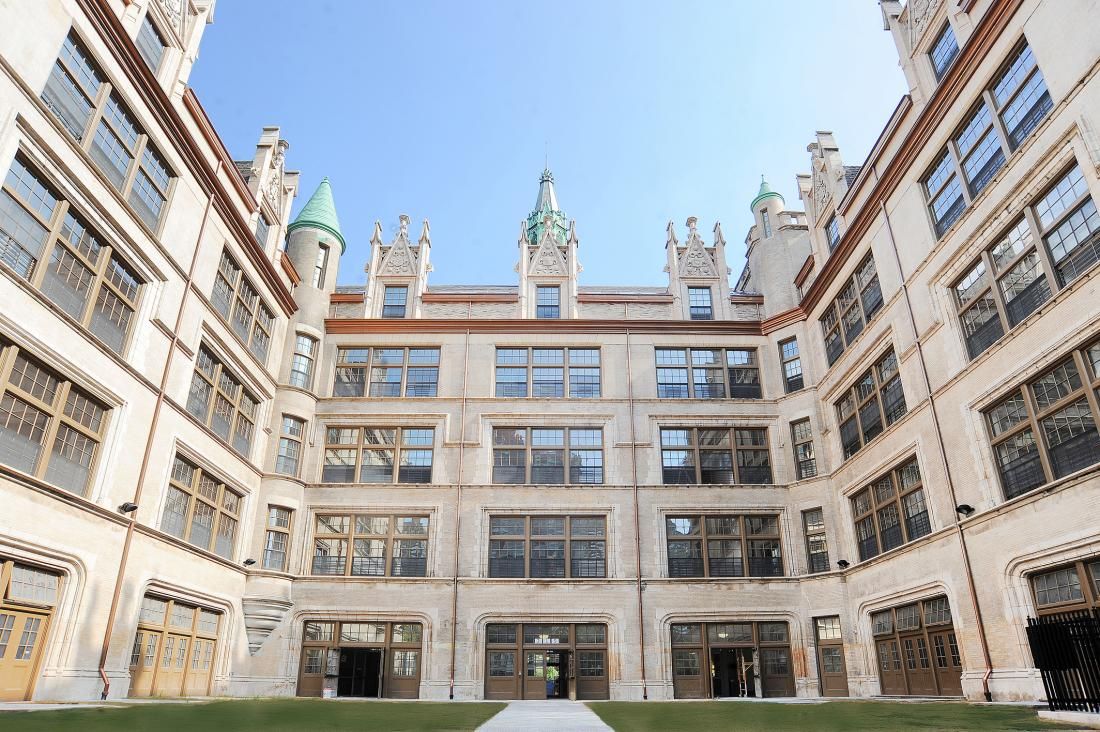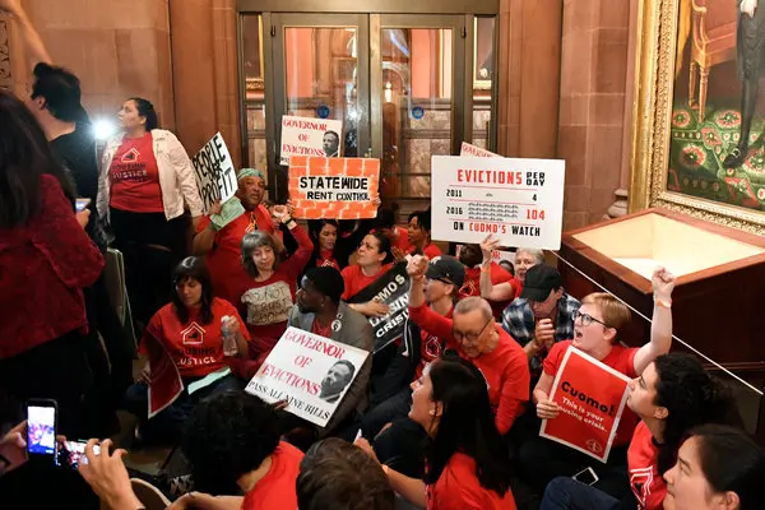by: Gwendolyn Stegall, Assoc. AIA, and Alejandra Zapata, Assoc. AIA, LEED
On Friday, September 17, 2021, the 2021 class of the AIANY Civic Leadership Program (CLP) convened for their fourth remote development session, organized by Gwendolyn Stegall, Assoc. AIA, and Alejandra Zapata, Assoc. AIA, LEED. The session, “Affordable Housing, Preservation & Data,” explored how architects can use housing preservation, historic preservation, and data as tools to combat the affordable housing crisis.
In New York City, while new luxury towers remain largely vacant, there are not enough affordable units to meet demand. As gentrification overtakes naturally occurring affordable housing and rent controls expire, many people who have lived in the same neighborhood for generations can no longer afford rents. This occurs disproportionately in neighborhoods that have historically housed large BIPOC populations; once forced into disinvested neighborhoods by racist practices like redlining, they now find themselves without protection from predatory landlords and unchecked market forces.
Historic Preservation and Affordable Housing
Historic preservation, and especially formal landmarking, is often pitted against affordable housing, but affordable housing in historic structures can be essential to alleviating the housing crisis. Caroline Cheong, Assistant Professor of History at the University of Central Florida, introduced us to what she labeled “An Equity Preservation Agenda,” in which marginalized groups have greater participatory agency, leading to processes and outcomes with distributive, reparative parity. This approach requires preservationists to engage in the fight for affordable housing and housing justice advocates to engage with preservation.
Much of the naturally occurring affordable housing and the rent-regulated housing in NYC is located in older buildings. Cheong explained how community-based tools such as community land trusts can preserve affordable housing in existing historic structures by sidestepping market forces and putting power in the hands of residents.
Data and Affordable Housing
According to the NYC Housing and Vacancy Survey, 44 percent of NYC is rent burdened, meaning that over thirty percent of their income goes to rent. The CLP cohort agreed that housing is a human right and should not be a commodity. However, the complexities of profit-driven market and the inner workings of the city make it more difficult to find solutions. Ryan Brenner, Research Analyst at the NYU Furman Center, discussed how data can help agencies make evidence-based decisions and unveil insights that otherwise would be almost impossible to quantify.
Brenner shared a series of platforms that the Furman Center has made available to the public, such as CoreDataNYC and NYC Neighborhood Data Profiles. These data-driven tools have been critical to understanding the current state of affordable housing. However, while data is critical for communities to make informed decisions, there is currently a lack of publicly available data that communities can access and understand.
Affordable Housing in NYC: Tenants’ Rights
Preserving affordable housing in NYC is as crucial as creating new units, and the tenants rights movement is a key actor in that fight. Two speakers from the Metropolitan Council on Housing, Andrea Shapiro, LMSW, Director of Program and Advocacy, and Kathy Wakeham, Hotline Volunteer, joined us to discuss the many battles their organization has been instrumental in winning, including a law passed in 2019 that made all existing rent control laws permanent and eliminated the incentive for landlords to evict rent-controlled tenants.
Met Council also emphasized that there is still significant work to do to preserve and create affordable housing. COVID-19, for example, has exacerbated many pre-existing problems: unemployment is twice as high as it was in 2020, 1.4 million tenants owe rent, and the homelessness rate has increased despite the eviction moratorium. In addition, the way affordability is calculated, by determining a region’s area median income (AMI), means “affordable” units are often out of the price range of existing residents. Despite these challenges, Met Council provided an encouraging reminder that the collective power of tenants is a force to be reckoned with.
Case Study of a Non-Profit Developer
Developers are a main agent in the creation of affordable housing, which makes it crucial to understand their points of view.
We were joined by Wendy Holmes, Senior Vice President of Consulting and Strategic Partnerships at Artspace, one of the nation’s leading non-profit arts developers, committed to creating and preserving affordable spaces for artists. Holmes shared two projects that focused on housing affordability and historic preservation, including a local project in the refurbished PS 109 building located in East Harlem. Artspace worked with the community to ensure cultural preservation and avoid gentrification. 72 percent of the funding for the project was public, including but not limited to state and local historic tax credits (HTC) and low-income housing tax credits. However, the process of applying for such credits is complicated and it remains important to continue to advocate for better policies that have affordability as the main goal.
Special thanks to:
Caroline Cheong, PhD, Assistant Professor, Department of History, University of Central Florida
Ryan Brenner, Research Analyst, NYU Furman Center
Andrea Shapiro, LMSW, Director of Program and Advocacy, Metropolitan Council on Housing
Kathy Wakeham, Hotline Volunteer, Metropolitan Council on Housing
Wendy Holmes, Senior Vice President, Consulting and Strategic Partnerships, Artspace Consulting
Erica Avrami, PhD, James Marston Fitch Assistant Professor of Historic Preservation, Columbia GSAPP
Ingrid Gould Ellen, PhD, Paulette Goddard Professor of Urban Policy and Planning, Robert F. Wagner Graduate School of Public Service; Faculty Director, NYU Furman Center
Martha Galvez, Executive Director, Housing Solutions Lab, NYU Furman Center
Vera Voropaeva, CLP Advisor, AIA New York
Christopher Perrodin, CLP Advisor, AIA New York
Kavitha Mathew, AIA, NOMA, LEED AP, Special Projects Director, AIA New York
Corey Arena, CLP Advisor, AIA New York











